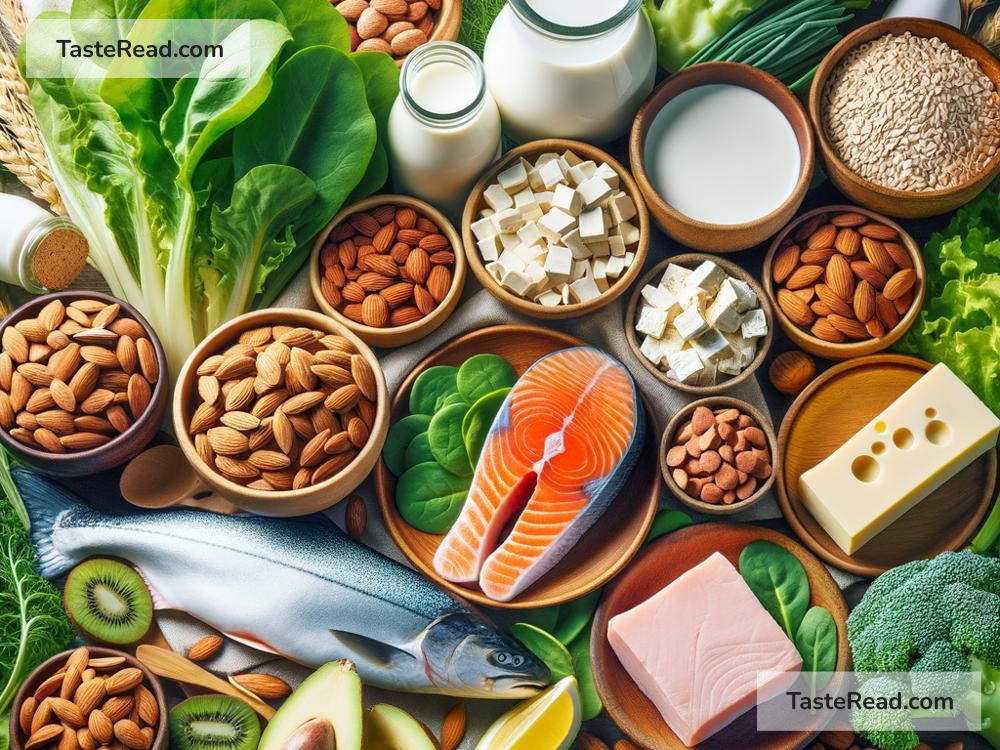Foods That Reduce the Risk of Fractures
Bone health is one of the most important aspects of overall well-being, yet it is often overlooked. Our bones provide support, protect vital organs, and enable movement. As we age, the risk of fractures increases due to weaker bones and falls. Thankfully, what we eat can play a key role in protecting our bones and reducing the risk of fractures. In this article, we’ll explore simple foods that can strengthen your bones and keep them healthy.
Why Bone Health Matters
Fractures are not just painful but can lead to long-term disabilities, especially for older adults. A healthy, balanced diet filled with nutrients like calcium, vitamin D, magnesium, and protein can help build and maintain strong bones. Including certain foods regularly in your meals can reduce the likelihood of fractures now and in the future.
Let’s take a look at the best foods for bone health.
1. Dairy Products
Milk, cheese, and yogurt are some of the best-known sources of calcium, which is crucial for strong bones. Calcium is the building block for bones, and getting enough of it every day can reduce the risk of fractures. If you’re lactose intolerant or vegan, you can opt for plant-based alternatives like almond milk or soy milk enriched with calcium.
Tip:
Pair calcium-rich dairy products with foods that contain vitamin D to improve calcium absorption.
2. Fatty Fish
Salmon, mackerel, and sardines are excellent sources of vitamin D and omega-3 fatty acids. Vitamin D helps your body absorb calcium and supports bone density. Omega-3 fatty acids also have anti-inflammatory properties and may decrease bone loss over time.
If you don’t regularly eat fish, you can consider taking a fish oil supplement or try plant-based sources like chia seeds and walnuts for omega-3s.
3. Dark Leafy Greens
Spinach, kale, broccoli, and collard greens are packed with calcium and magnesium. Magnesium plays a key role in strengthening bones because it helps convert vitamin D into its active form, which the body can use. These veggies also include vitamin K, which helps reduce the risk of bone fractures.
Fun Fact:
One cup of cooked collard greens contains nearly as much calcium as a cup of milk!
4. Eggs
Eggs are a simple and affordable source of vitamin D, especially in their yolks. While egg whites are lower in nutrients, the yolk contains essential elements for bone health. Physical activity combined with a breakfast that includes eggs can help keep your bones strong and reduce fracture risks.
5. Nuts and Seeds
Almonds, sunflower seeds, and walnuts offer magnesium, calcium, and healthy fats that contribute to healthier bones. They also contain protein, another vital nutrient for bone-building. Protein helps the body repair bones and build new tissue after damage.
Easy Snack Idea:
Grab a handful of mixed nuts for a quick, bone-friendly snack during the day.
6. Beans and Lentils
Beans such as black beans, navy beans, and lentils are packed with calcium, magnesium, and fiber. They also contain protein and some vitamin K, which strengthens bones and helps repair any small fractures. These are great for vegetarians looking for nutrient-dense options.
7. Fortified Foods
Many cereals, juices, and plant-based milks are fortified with calcium, vitamin D, and other essential nutrients for bone health. This is especially helpful for people who might not eat dairy or fish but still need strong bones. Check the labels when shopping to make sure you’re getting the added nutrients.
Pro Tip:
Opt for fortified orange juice for a refreshing drink that boosts both calcium and vitamin D intake.
8. Fruits Rich in Vitamin C
Vitamin C aids in forming collagen, a protein found in bones and connective tissues. Fruits like oranges, strawberries, kiwi, and pineapples are high in vitamin C. Collagen helps bones stay flexible and absorb impacts better, reducing the risk of fractures.
9. Whole Grains
Whole grains like quinoa, brown rice, and oats are full of magnesium and fiber. They also help maintain a healthy gut, improving the absorption of calcium and magnesium from other foods.
Simple Lifestyle Changes to Complement Your Diet
Eating bone-friendly foods is only one part of the puzzle. Lifestyle choices play another important role in reducing the risk of fractures. Consider the following tips:
- Engage in weight-bearing exercises like walking, jogging, or yoga to strengthen bones.
- Avoid smoking and limit alcohol consumption, as both can weaken bones.
- Get enough sunlight daily as it boosts vitamin D levels naturally.
- Stay hydrated! Water helps maintain soft tissue that supports your joints and bones.
Final Thoughts
The risk of fractures may seem like a concern for older adults, but building stronger bones starts early. By including calcium, vitamin D, magnesium, and protein-rich foods in your diet, you can protect your bones and reduce the chance of injuries. Simple everyday foods like milk, fish, greens, and nuts can go a long way in making your bones stronger and healthier.
Remember, your diet is your first line of defense against bone problems. Treat your bones well, and they’ll support you for years to come!


